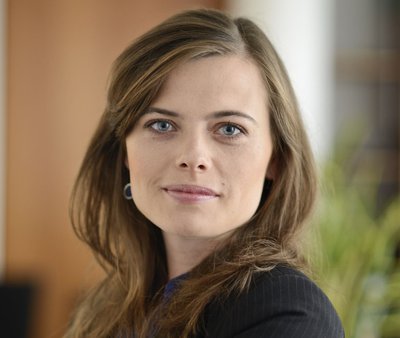21 Nov 2014
MILE Alumni Profiles: Agnė Sovaitė
"I would advise trying to make the most of the MILE programme - its unique modules and the network that it offers."
MILE 11 graduate Agnė Sovaitė works for a law firm in Lithuania where she deals mainly with issues of European Union and local law. As Lithuania’s economy develops she is also required to give advice on the cross-border provision of services, and is grateful for the understanding of international trade issues she acquired on the MILE programme.
Tell us about your current job and the cases you deal with
As of graduation from the WTI, I started working in SORAINEN, one of the leading regional law firms operating in the Baltics and Belarus. I work in the Vilnius office and specialise in the banking, finance and insurance law fields. My work spans regulatory and transaction advice to local and international banks and insurance corporations to counselling the state on legislative initiatives, borrowing in international markets and investment disputes.
To what extent are you using knowledge acquired during the MILE programme?
Although my daily work mostly concerns local and EU law, I very much value the knowledge acquired during the MILE programme when it comes to advice on cross-border provision of services. In the age of globalisation, open economies like Lithuania see more and more EU and third country players looking for opportunities in the rapidly developing markets. The MILE programme has provided me with a great understanding of various aspects of international law and economics.
What made you decide to join the MILE programme in the first place?
Having already completed my bachelors and masters studies in law in Lithuania, I was looking for a graduate programme that would offer an interdisciplinary curriculum of both law and economics. The interdisciplinary approach offered by the MILE programme in terms of curriculum and the strength and diverse background of the faculty - academia, practitioners, representatives of various international organisations - seemed to be exactly what I was looking for. The faculty’s connections with industry was another strength of the programme.
Did you have a clear plan of what you wanted to do afterwards, and if so, to what extent have you achieved that? I had been working in a legal sphere prior to joining the MILE programme and I wanted to remain in legal counselling after it. I did not have a clear picture of what exactly my future working place would be after graduation, and I suppose like most of my classmates I was open to various possibilities. When the opportunity arose, I was happy to join my firm.
What advice would you give to MILE students and those considering joining the programme?
Due to the interdisciplinary nature of the programme (law, economics and international relations), some subjects may prove to be more difficult depending on your background. It definitely makes it easier if you can rely on the advice of your classmates on subjects that you are less familiar with, especially when it comes to the moot court assignment. I have a very fond memory of my classmates being very supportive of each other. On a general note, I would advise trying to make the most of the MILE programme. Not only its unique modules but also the network that it offers: starting from the international institutions, to its outstanding professors and the students with very different backgrounds who come from all over the world. As the world is getting smaller and ever more interrelated, you never know when in your professional or personal life you may run into your professor or your course mate after graduation.


